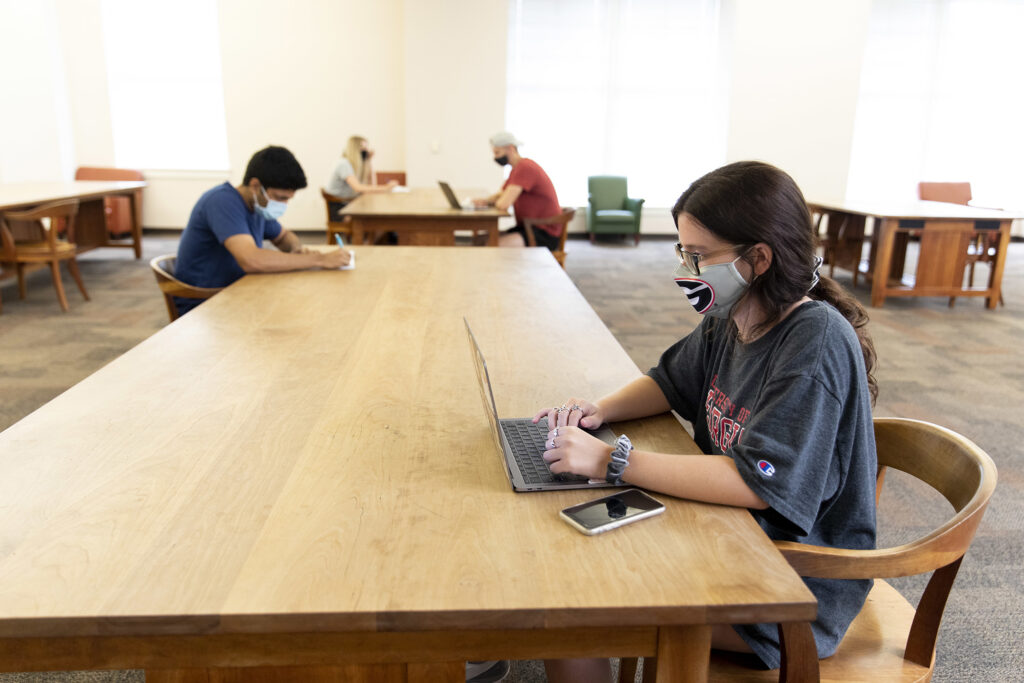From Dec. 7 to Jan. 11, the University of Georgia will administer the Healthy Minds Study, a web-based survey study examining mental health, service utilization and related issues among undergraduate and graduate students.
The survey is one element of UGA’s new partnership with the JED Foundation. JED provides a comprehensive public health approach in promoting emotional well-being and preventing suicide and serious substance abuse. JED services include the development of a campus-specific strategic plan, advising support in implementing the plan, campus education and engagement services and a mental health resource library for campus use.
These initiatives are part of the University System of Georgia’s significant expansion of student mental support services during the COVID-19 pandemic. While USG students have proven to be remarkably resilient during the pandemic, with higher academic achievement and a record number of degrees awarded, the unique challenges students face right now heightens the need for additional mental health resources.
Beau Seagraves, associate dean of students and director of Student Care and Outreach, leads UGA Student Affairs’ Wellbeing & Success Initiative and coordinates UGA’s implementation of the USG mental health initiative. He expressed appreciation for the increase in resources and focus on student mental health needs.
“This year has not only presented new challenges, but it has also brought the challenges students face every year to the fore,” Seagraves said. “We are more resolved than ever to ensure our students have the support they need to accomplish their goals.”
In the coming months, expanded services will also include in-person and telehealth counseling options through a partnership with Christie Campus Health, a 24/7 access line and well-being support programs. Additional funds will be set aside to create a USG Mental Health Consortium, which will develop a long-term service model for USG’s 26 institutions.
Additionally, in recognition of the unique needs of each campus, USG will provide mini-grants to support mental health and wellness. These funds may establish new technology resources, increase campus programming or enhance communications.
At the University of Georgia, these programs will join an already robust offering of student mental health and well-being support services, including Counseling and Psychiatric Services (CAPS) and Health Promotion out of the University Health Center, as well as Student Care and Outreach and numerous other resources out of Student Affairs, Instruction, and across campus and the community.
“The mental health and well-being needs of UGA students are as diverse and unique as each UGA student,” said Seagraves. “It is wonderful to be able to increase access and add even more support during this challenging time and beyond.”
